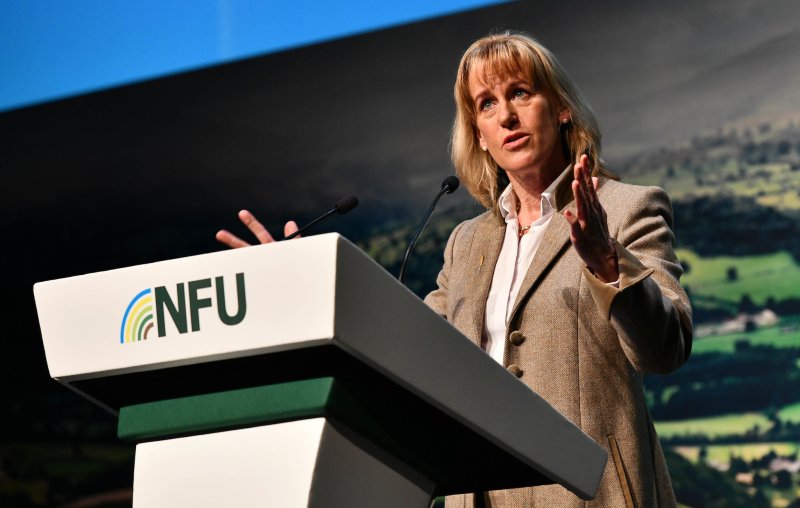
Chancellor Jeremy Hunt's Spring Budget failed to address the needs of agricultural and horticultural businesses facing surging energy costs, the NFU has warned.
The union's president Minette Batters wrote to the Chancellor ahead of the Spring Budget on 15 March, urging the government to prioritise food production.
The letter reinforced the need to extend the Energy and Trade Intensive Industries (ETII) scheme to include energy intensive sectors such as horticultural and poultry production.
Current support, under the Energy Bill Relief Scheme (EBRS), is due to expire at the end of March.
It will be replaced with the Energy Bills Discount Scheme (EBDS), which will run for 12 months.
But this scheme offers far less protection to businesses with the removal of the price cap, which will instead be replaced with a token discount.
A pre-defined selection of industries have been identified for additional support under the ETII.
However, in the government's Spring Budget announced earlier this week, Mr Hunt did not extend the scheme to cover farm sectors.
Mrs Batters said this lack of support for the industry was 'extremely frustrating' as production costs continued to soar, with many farmers now facing a 'cliff edge'.
She said: “The NFU was clear that greater support is needed for the thousands of farm businesses which are trying, but struggling, to keep our nation fed amidst soaring production costs.
"It’s therefore extremely frustrating that the Energy and Trade Intensive Industries scheme was not extended to include energy intensive sectors such as horticulture and poultry.
“It begs the question – where does boosting Britain’s food security fit into the Treasury’s growth plans?" the NFU president asked.
The union had called for an urgent review into the ETII, stating that it was "irresponsible" that the scheme "completely overlooks" food production.
"Not to mention it being wholly at odds with the government’s own ambition to produce more home-grown fruit and vegetable," Mrs Batters added.
“An urgent review into the ETII is needed to ensure that essential and vulnerable food producing sectors do not face a cliff edge when the Energy Bill Relief Scheme ends later this month."
Earlier this month, the UK's four farm unions, including the NFU, sent a letter to the government calling for an extension of the ETII to include horticultural and poultry production.
The letter concluded that unless the scheme is amended to provide a higher level of relief, there could be a fall in UK food production.
It stated: “When the EBRS changes at the end of March, higher energy costs will be a challenge for all farmers, however, the situation will be acute for the poultry and horticulture sectors.
"Poultry businesses are reliant on gas and electricity to rear poultry and store fresh produce safely and they will struggle to absorb the huge hikes in energy prices that they will face.
"Horticulture’s exposure is significantly greater for gas for glasshouse heating, but also electricity used for lighting (for those with lit crops) and chilling and storing picked produce."
The letter warned: "Energy prices are already seriously damaging our ability to produce food and from next month, many of our members’ businesses will face an energy cost cliff edge.”
